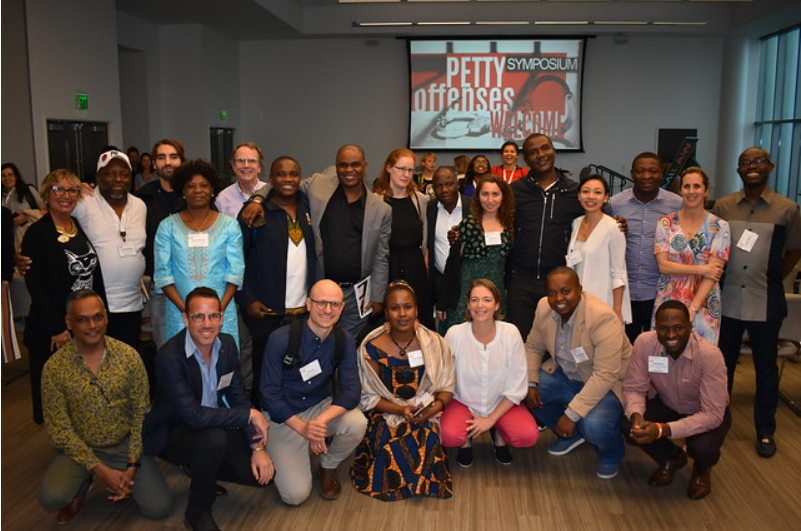Throughout the globe, petty offenses, such as loitering laws, are used to exert social control. They criminalize poverty and marginalization and police gender norms. In the United States and locally in Miami, the use of petty offenses to criminalize poverty is also a critical issue where people experiencing homelessness regularly face the threat of criminal sanctions for fulfilling basic needs.
On September 20-21, 2019, the University of Miami (UM) School of Law’s Human Rights Clinic hosted a symposium on “Petty Offenses: Challenging the Criminalization of Poverty, Marginalization, and Gender Non-Conformity, in collaboration with the UM Race and Social Justice Law Review, UM Law Review, UM School of Communication, National Law Center on Homeless & Poverty, and the Open Society Foundations’ Human Rights Initiative.
The symposium explored the use of litigation; human rights advocacy at international, regional, national, and local levels; and creative campaigning. It drew on work from Ghana, Guinea, Guyana, Hungary, India, Israel, Jamaica, Kenya, Madagascar, Malawi, Nigeria, Sierra Leone, Trinidad and Tobago, Uganda, and the United States. A special symposium issue of the University of Miami Law Review further captured lessons and reflections, as well as includes a synopsis of the event. A blog on the symposium was also published as part of the Human Rights at Home Blog series. The symposium further led to development of the PoorNotGuilty website, providing resources for a global movement to decriminalize poverty and petty offenses. Additionally, interviews from various speakers at the resulted in development of a video on “Why It’s Time to Repeal Petty Offense Laws.”
Read more: https://www.law.miami.edu/academics/clinics/human-rights-clinic/petty-offenses-symposium


